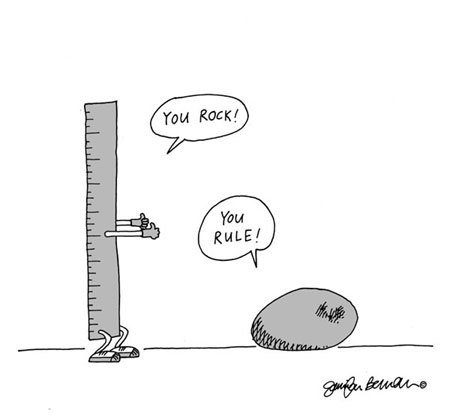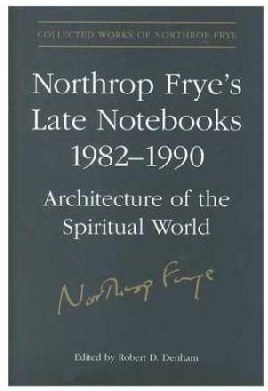Professor Mondo links to Bob’s post today on Frye and Religion in the Late Notebooks, so let us reroute you there to see what he has to say about it.
Daily Archives: August 1, 2010
Slavery
Today provides a number of important anniversaries in the history of African slavery across more than two centuries.
On this date:
In 1619 the first African slaves arrived at Jamestown, Virginia.
In 1834 slavery was abolished in the British Empire by the Slavery Abolition Act.
In 1838 non-laborer slaves in the British Empire were emancipated.
In 1840 laborer slaves in the British Empire were emancipated.
Frye in conversation with David Cayley:
What man wants always is slavery or mastery. That is, he wants mastery first, and if can’t have that he’ll settle for slavery. (CW 24, 98)
Frye in “The Dialectic of Belief and Vision”:
Primary concerns are those common to the whole human race: concerns about food, shelter, and survival: a freedom without anarchy, a social order without slavery, a happiness without misery. (CW 3, 253)
Our earlier post on the Canadian Act Against Slavery (1793) here.
Frye on Religion in the Late Notebooks: A Little Anthology
Notebook 27.
[87] Re the previous (but one) note: expanded consciousness is not religion, of course, but it may be the precondition for any ecumenical or everlasting-gospel religion. Note that the gospel-church begins with ecstatic phenomena (speaking in tongues), and that our own time is rich in frenzies and hysterias along with more genuine phenomena. LSD (when it’s a good trip) appears to increase the intensity of the feeling of oneness with the object.
[104] The Word-Spirit dialogue is slowly assuming a spiral or ladder shape: it conceivably might work out to a counterpart of Hegel’s Ph [Phenomenology of Spirit], only in images instead of concepts, with a religion of parable forming its crisis. And, of course, there’s the other great hope that it would follow the four levels of meaning.
[106] The dialectic movement from creation to exodus is clearing. The forming of a specific mythology is the only possible response to a hidden creation. As Blake says, religion is a specific social development of the Poetic Genius [All Religions Are One]. In a sense a mythology negates or denies the creation, on Hegelian principles.
[128] In metaphor, as I said, across [par. 122], we have Joseph “here” and bough “there”: by identifying them in an assertion which “everybody” knows is not “real” identity we eliminate space and have only verbal space. Similarly with myth and time. The god, I said, stabilizes the metaphor: all religions lean in a subjective (Dionysian) direction, where you identify with the god through a group, or an objective one where the god remains transcendental and adored.
[136] I’ve mentioned how in the 19th c. religion gets identified with the find-the-true-church puzzle [par. 43]. Newman is the pattern here. I suppose S.K.’s [Kierkegaard’s] attack on “Christendom,” perhaps even Nietzsche’s anti-Xn [anti-Christian] polemics, are a kind of neo-Protestantism.
[151] Thus, without losing its specific historical orientation through Judaism and Christianity, the Bible is an archetypal model of a perennial philosophy or everlasting gospel. At least, that’s what I’d call it if I were writing a book on religion. We really do move from creation to recreation.
[197] I have very few religious books, & those I have stress the mystics. I have great difficulty, nonetheless, in reading, say, Boehme, because mystics (less true of Boehme than of others) seem so masochistic: isn’t this stuff just wonderful that we have to say we believe anyway? But now Boehme is making more sense as I move closer to light and signature symbolism. Once more, it’s not that I “believe” him but that this is the kind of link between the Bible and the creative imagination that I’m looking for.
[206] I need more on primary & secondary concern. I want the Innis stuff about Reformers & Marxists settling into an adversary situation. Marxism in theory transcends ideology, & some bourgeois masochists (Barthes) go along with this. But when we look at what Lenin says about religion it’s clear that a counter-ideology is being set up: there’s no transcendence of ideology. So my faith-ideology-secondary concern and charity-transcendence-primary concern still stands.
[207] Anyway, the religious-secular dichotomy doesn’t work, except as an illusion of ideological adversaries. A “pro-religious” attitude merely keeps an “anti-religious” one in business, and vice versa. That’s the real implication of my aligning revolutionary psychologies in Biblical religions and Marxism, not some bromide like “Marxism is really a religion after all” (though I’ve said it is in interviews). Everybody knows that all religious social phenomena are inextricably bound up with “secular” elements in politics and economics. So in reverse.


